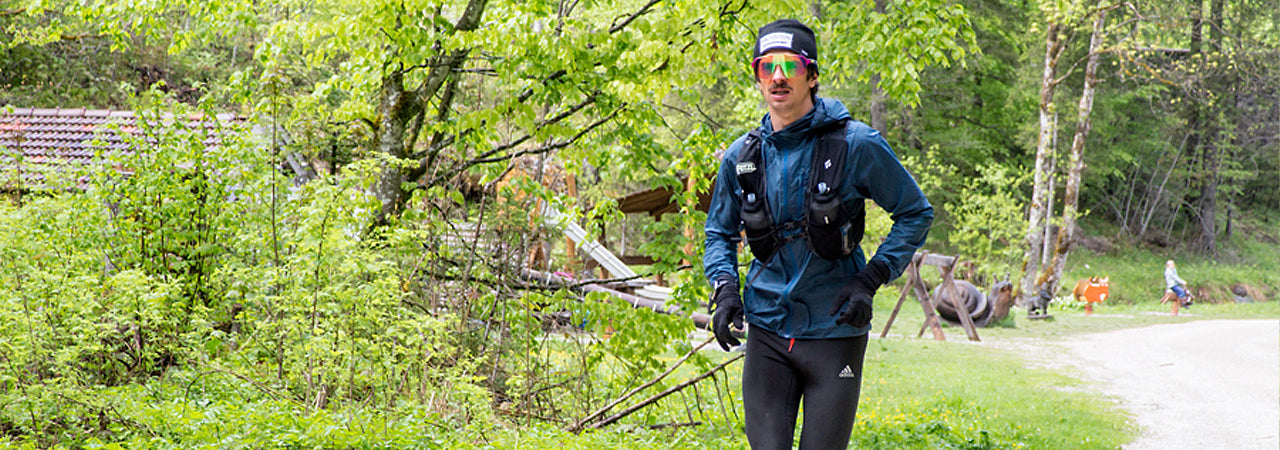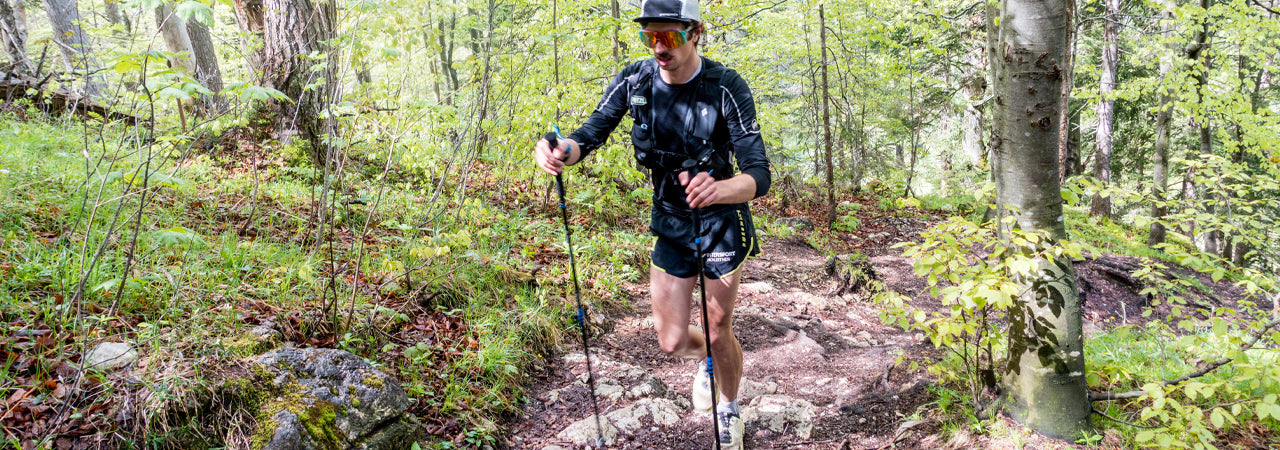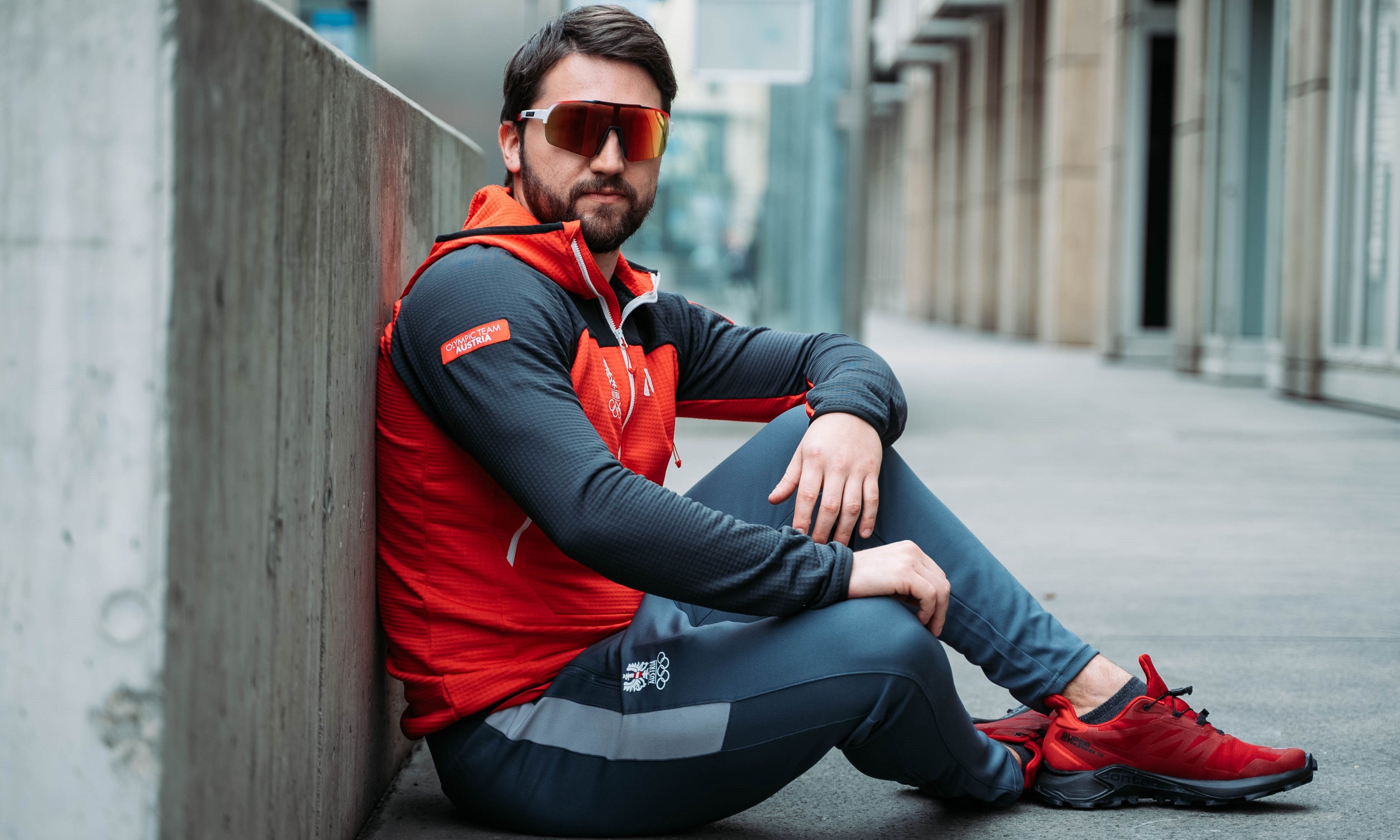Whether hilly, flat or in alpine terrain, when it comes to trail running, one thing is the most important: having fun in the nature! Our J. Athletics Ambassador Armin Zwinz reveals his 9 best practice tips for beginners in this blog and goes into detail on the topics of nutrition and equipment.
- Start slowly and increase step by step. It is important that you always listen to your body. The more difficult the terrain, the more likely you should have some running experience. At the beginning you should walk uphill first and only run the flat passages. So you slowly build up the necessary strength. It takes a little time, but be patient.
- Warming up is a must, but avoid intense stretching, as this will cause you to lose muscle tension and increase the risk of injury!
- Don't think too much about everyday life, enjoy the outside world and be aware of it while running. What flowers you see, which birds you hear
- Run in a group! Don't go running alone; find other motivated runners. Because together it's more fun and you push each other.
- Baby powder can save lives in bad weather! With baby powder, your feet will always stay dry.
- Keep your dirty socks! Avoid changing your socks on long runs, as you could get blisters much faster. However, it is very important to put on dry socks as soon as you get wet.
- Pay attention to your performance range! If you can talk in addition to running, you are doing it right.
- Run without music! Listen to your breath and focus on the nature.
- Cool down! Don't throw yourself on the couch with chips after the run - cool down with a short walk.

Equipment
Saving on equipment is never a good idea. Trail running wears out the material quickly, don´t save on the wrong places.
The shoes: No matter how good your shoe is, if it is brand new, you will experience a nightmare on the first longer run and be punished with blisters on your feet. I also recommend that you choose your running shoe 1-1 / 2 sizes larger than your street shoes. After approx. 100 km a new pair is needed! By then, at the latest, every running shoe has run through.

The clothing: Be sure to wear breathing sportswear. In addition, you should always have a running jacket and a beanie or headband with you in order to be prepared for cold temperature or rain. For socks, I recommend merino wool, which keeps you warm, breathes, dries quickly and your feet will never stink again. ;-)
The running backpack: Nothing works without a running backpack. You need at least a drinking bottle and bandages with a rescue blanket, blister plaster, etc. with you. However, I always recommend taking two drinking bottles with you, one with water and one with an isotonic drink. The optimal size for the running backpack is approx. 7 liters.
The sticks: Of course not an obligation, but they help you to keep your balance.
The heart rate monitor: An entry-level device is sufficient here so that you can control your pulse and maintain the desired range.
Sun protection: Depending on the weather, you shouldn't forget sunscreen. One sunglasses is always a must. Even when it's cloudy, the glasses protect your eyes from the wind, for example.

nourishment
Everyone is different when it comes to nutrition. But what everyone needs is enough energy before the run and a quick replenishment of the storage after the run. You have to find out for yourself what exactly suits you best.
A few basic rules: Eat food that is as natural as possible and that is little processed, such as bread, potatoes, rice, etc. Avoid using a lot of spices or sauces. I would avoid heavy food the evening before, including onions, because they have a negative effect on your sleep! A pasta dish or lentils with potatoes are the best for me.
You can burn 5000-6000 kcal during a run. In this respect, you have to use gels or bars to ensure that your energy level stays at the top. After your trail run, you can of course eat what you want.
Don't be afraid to start
You're probably wondering, can I just start running? Yes! Even as a bloody beginner you can easily start on field and forest paths. Get to know your surroundings in a new way and face the challenge. What are you waiting for? Start your trail running adventure now!





